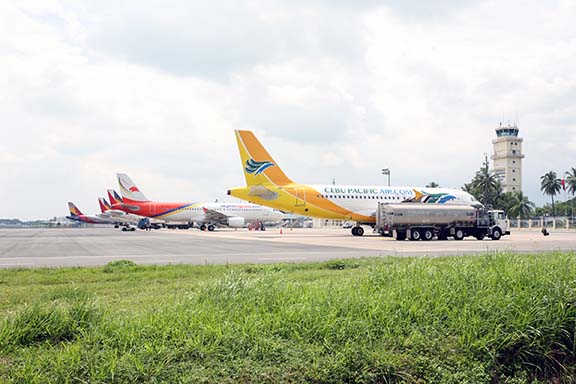
-
Clark’s civil aviation complex inside the Clark Freeport Zone is viable as a globally competitive logistics center in Southeast Asia
-
The aviation complex must be primed as a cargo, service, and logistics hub for multinational companies to complement Clark International Airport
-
CIAC is wooing top investors in the logistics and service industries and developing further the prime government-owned land surrounding the airport into service centers for airlines, logistics and warehouses, as well and transport hubs
The civil aviation complex inside the Clark Freeport Zone is viable as a globally competitive logistics center in Southeast Asia, according to an official of Clark International Airport Corporation (CIAC).
CIAC officer-in-charge Darwin Cunanan said in a statement that the 2,367-hectare aviation complex, which is home to Clark International Airport (CRK), must be primed as a cargo, service, and logistics hub for multinational companies to complement the aviation hub.
Cunanan’s statement follows the recent grand opening of Clark’s new passenger terminal building.
“The Clark aviation complex is distinctly viable for its privately run world-class international airport, a sprawling and uncongested complex with aviation-related industries, a business-friendly and disaster-resilient environment, plus we have the full support of Transportation Secretary Jaime Bautista and the Bases Conversion and Development Authority,” Cunanan said.
President Ferdinand Marcos Jr. said in a speech at the terminal’s grand opening that the new facility “is another building block to what we hope to become: a logistics center of Asia.”
Envisioned to be Asia’s next premier gateway, the 110,000-square-meter new terminal has a design capacity of at least 8 million passengers annually, in addition to the 4.2 million passengers that the first terminal can handle.
Cunanan noted that three of the world’s largest aircraft maintenance, repair, and overhaul (MRO) service providers – Singapore Airlines Engineering Philippines, Lufthansa Technik Phils., and Hong Kong’s Metrojet Engineering – are based in Clark, while express freight giant FedEx is one of CIAC’s major locators at the aviation complex.
The CIAC executive added that the agency had refocused its marketing efforts to encourage top investors in the logistics and service industries and develop further the prime government-owned land surrounding the airport as service centers for airlines, logistics and warehouses, as well as transport hubs.
CIAC is a government-owned and controlled corporation that manages the Clark civil aviation complex, which is home to the privately run CRK, the mixed-use business district Clark Global City, and around 45 locators in manufacturing, cargo and aviation-related businesses.
RELATED STORY: Clark airport complex eyed as SEA service, logistics hub




